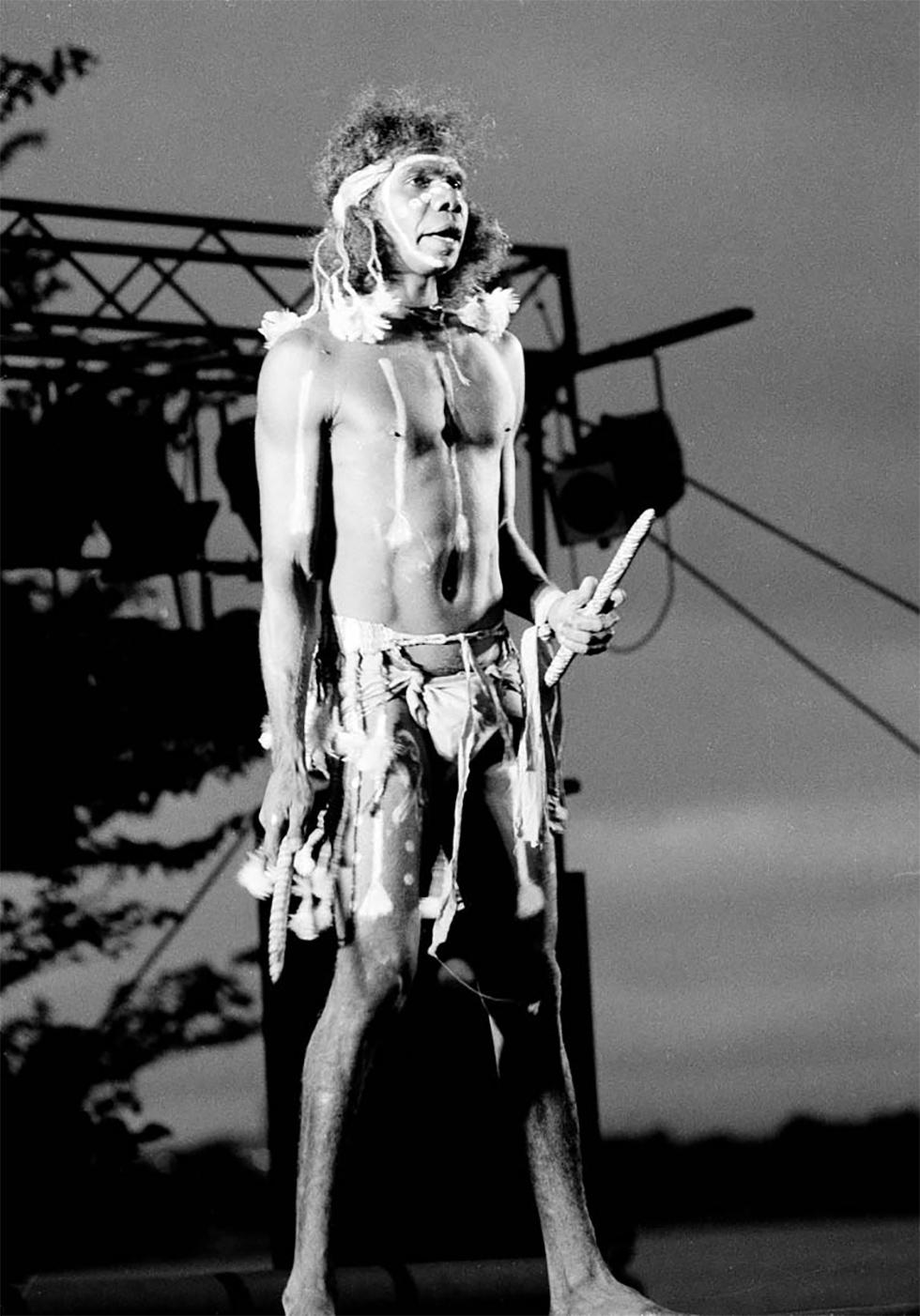


About this record
This black-and-white photograph shows celebrated Indigenous Australian actor and dancer David Gulpilil in performance at the 1982 Australia Day celebrations in Canberra. Gulpilil is in costume, wearing a headdress, breechcloth and belt, and holding clapping sticks. Stage equipment – scaffolding, a spotlight and a speaker – can be seen in the background.
Educational value
- Yolngu man David Gulpilil (1953– ) first came to prominence as one of the most accomplished ceremonial dancers of his generation. In 1969 his skills attracted the attention of British film producer Nicholas Roeg, who cast him in the film Walkabout, which was first screened in 1970 and released in 1971. The exceptional acting and dancing skills he displayed propelled Gulpilil to national and international success.
- Dance performance was the mainstay of Gulpilil's career in 1982, and he was recognised nationally and internationally as Australia's finest performer of Indigenous dance. He led a dance company for 10 years, and staged performances around the country including in Canberra, as seen here. He won the Darwin Australia Day Eisteddfod dance competition four times and his achievements were recognised by appointing him Member of the Order of Australia in 1987.
- By early 1982, when this photograph was taken, Gulpilil was in the second decade of his acting career. In 1976 his performance as Fingerbone in Storm Boy was a major success. Other roles included Billy in Mad Dog Morgan (1976) and an appearance in The Last Wave (1977). After these high points, film roles were not especially plentiful and by the early 1980s television was providing some work. Gulpilil featured as Bennelong in the mini-series The Timeless Land in 1980.
- Gulpilil spent his childhood in the bush receiving a traditional upbringing and his country, in the Ramingining area of Arnhem Land, has been a major creative influence throughout his life in both dance and film. For example, his country and part of its Dreaming were the source of the film Ten Canoes (2006), which Gulpilil initiated and narrated. He has returned to his country to live as a respected Elder.
- The early 2000s saw a resurgence in Gulpilil's film and stage career. He appeared in Rabbit-proof Fence(2002), The Tracker (2002), The Proposition (2005), Ten Canoes and Australia (2008), winning an Australian Film Institute Award for Best Actor for his role in The Tracker. In 2004 he explored the contradictions and challenges of working in both Indigenous and non-Indigenous cultures in a one-man stage show, Gulpilil.
Acknowledgments
Learning resource text © Education Services Australia Limited and the National Archives of Australia 2010.
Related themes
Need help with your research?
Learn how to interpret primary sources, use our collection and more.




